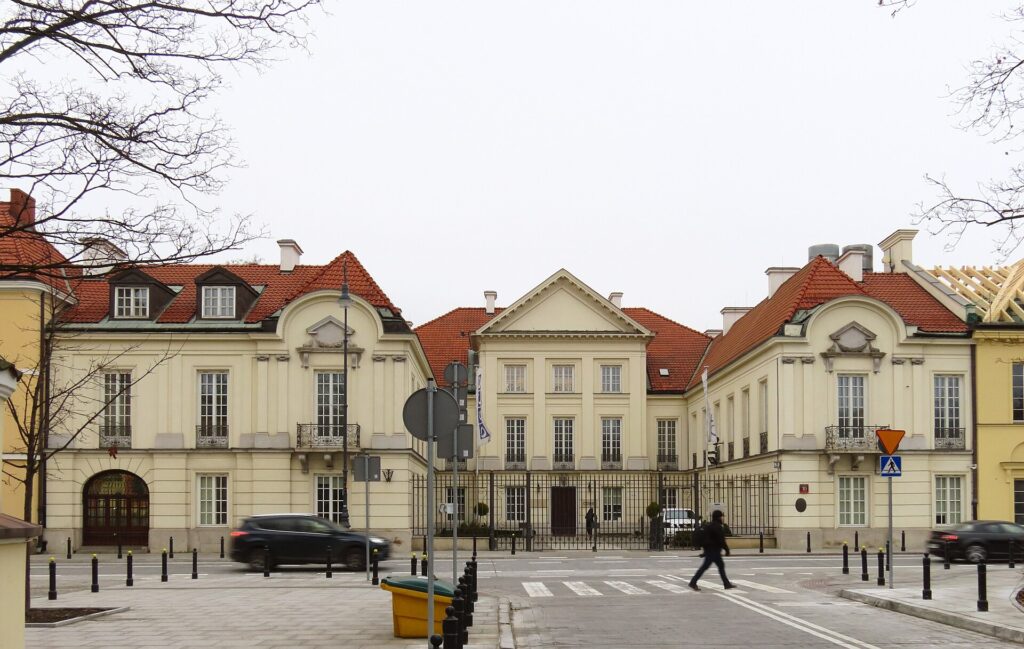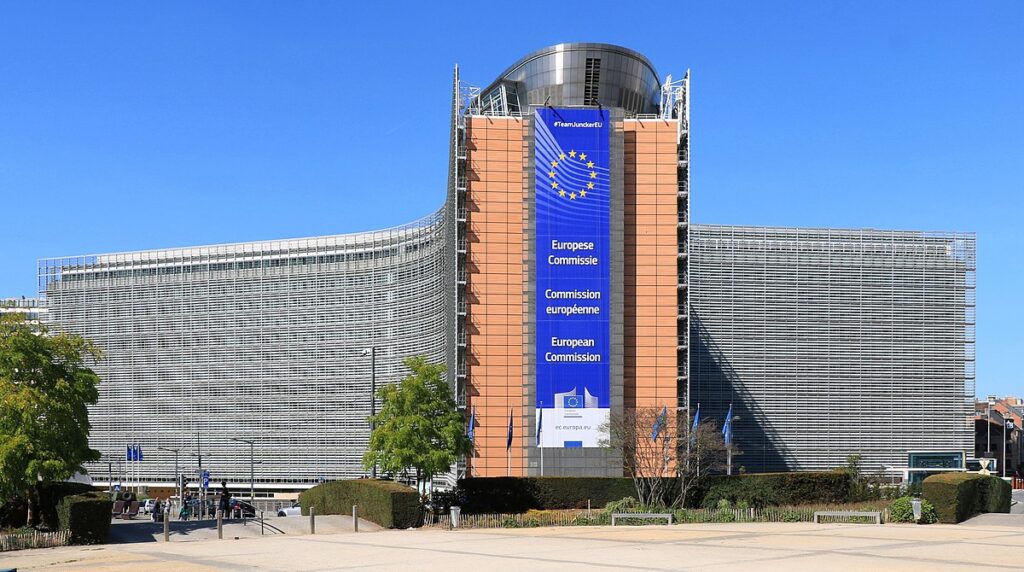- On the eve of Poland’s presidential election, a government body that was supposed to protect cybersecurity and combat disinformation was spreading disinformation itself.
- The case concerns media spots of unknown origin, which has been encouraging people to vote for the candidate supported by the current government and attacking opposition candidates.
On 14 May 2025, the Research and Academic Computer Network – National Research Institute (NASK) issued a statement warning of possible foreign interference in the election campaign:
The NASK Disinformation Analysis Centre has identified political advertisements on Facebook that may be financed from abroad. The materials were displayed in Poland. Over the past seven days, the advertising accounts involved in the campaign have spent more on political materials than any election committee. The actions were apparently intended to support one of the candidates and discredit others. The campaigns carried out by the advertising accounts focused in particular on Rafał Trzaskowski, Karol Nawrocki, and Sławomir Mentzen. The analysis indicates a possible provocation. Its aim may have been to harm the candidate allegedly supported by such advertisements and to destabilise the situation before the presidential election.
The content of the message suggests that although the individuals appearing in the videos spoke unequivocally negatively about the Karol Nawrocki (candidate supported by Law and Justice party) and Sławomir Mentzen (candidate of Confederation Liberty and Independence party), while praising Rafał Trzaskowski (candidate supported by the current government), the videos were in fact intended as a provocation against the latter—carried out without neither his knowledge nor consent and were meant to harm him.
However, the very next day, journalists identified the actual organisers behind the campaign, shedding new light on its likely motives. It turned out that the company responsible for the spots is Estratos Digital GmbH, based in Vienna and led by Hungarian politicians Ádám Ficsor, who served as Minister of Special Services in the left-wing government of Gordon Bajnai (in office before Viktor Orbán came to power), and Viktor Szigetvári, also associated with the opposition to Orbán’s government. The majority shareholder of the company is Higher Ground Labs Fund III LP, which is linked to the U.S. Democratic Party.
What is particularly significant is that the Fundacja Akcja Demokracja (Action Democracy Foundation), which has cooperated with Estratos for many years (including use of its IT tools), admitted to assisting in the recording of these spots. In a statement published on its website, the foundation acknowledged that it had forwarded Estratos’ request to find individuals willing to participate in “voter turnout spots” to its volunteers. According to journalists’ findings, the vast majority of people appearing in the spots—which were styled to look like spontaneous street polls—were, in fact, volunteers from the foundation. One such participant, in response to journalists’ questions, mentioned that among those recording the spot were “a man from the United States who did not speak Polish, and a girl from Akcja Demokracja.”
It should be noted that Akcja Demokracja is an organisation that clearly aligns with one side of the political dispute in Poland. It opposes the life protection standards enshrined in the Constitution of the Republic of Poland, undermines the constitutional identity of marriage, and openly supports violations of the rule of law committed by the current government—such as the unlawful termination of the mandates of MPs Kamiński and Wąsik. According to journalists, its current president, Jakub Kocjan, was until recently a social assistant to Iwona Karolewska, a member of the Civic Coalition. What is particularly shocking, however, is that as president of the foundation, he participated in meetings organised by NASK on election security and disinformation prevention.
Pigułka wiedzy dla wszystkich!
— NASK (@NASK_pl) May 9, 2025
Za nami spotkanie #ParasolWyborczy ze specjalnymi gośćmi. Główny temat? Bezpieczne wybory i ochrona przed dezinformacją.
Dziękujemy za wspólne spotkanie!#bezpiecznewybory #ParasolWyborczy pic.twitter.com/DhCwYb0AX9
Pan @Jakub_Kocjan, I Zastępca Dyrektora @AkcjaDemokracja, jest również zaangażowany w projekt @CYFRA_GOV_PL „Parasol Wyborczy”, który – we współpracy z @NASK_pl – ma na celu „ochronę wyborów”.
— Adam Czarnecki (@czardam) May 14, 2025
Ci ludzie tworzą hejterskie filmy, a następnie „dbają, aby wybory były uczciwie”.… https://t.co/urmoX5x3gW pic.twitter.com/tMSZ6pbUka
In light of the above, NASK’s claim that the spots were intended as a provocation against Rafał Trzaskowski seems highly unlikely and may itself constitute disinformation.
Everything suggests that the subsequent information released by NASK—allegedly as an “update”—which claimed the spots were removed from Facebook following the institute’s intervention, is clear disinformation. According to information obtained by journalists, no such removal took place. Instead, the promotion of the spots ended because the paid campaign period had expired. Moreover, Facebook’s (Meta’s) administration clarified that the entity that posted the spots is not foreign:
As we have learned from Meta, nothing has been blocked. The paid campaign has simply come to an end. NASK did not respond to our question as to why it misled the public. Meta also stated that “the administrator associated with these pages [Wiesz Jak Nie Jest and Stół Dorosłych] has confirmed his identity and is located in Poland. We have found no evidence of foreign interference.”
It is deeply regrettable that the Research and Academic Computer Network – National Research Institute, a government body formally reporting to the Minister of Digital Affairs (who, pursuant to Article 24(2) of the Act on Research Institutes, appoints and dismisses its director), and which, under the National Cybersecurity System Act, plays a key role in cybersecurity, is permitting the spread of deliberate disinformation—possibly, as inferred from the context, for political purposes.
This entire situation raises the question of whether entrusting government entities with the task of “combating disinformation” is compatible, in the long term, with the constitutional freedom of expression (Article 54). Serious risks in this regard—based in part on NASK’s actions—have recently been flagged by U.S. congressmen expressing concern over censorship tendencies in Donald Tusk’s government.
It should also be emphasised that such spots—allegedly pro-turnout, but in reality discouraging support for specific candidates and thereby, at least indirectly, promoting others—may constitute an attempt to circumvent the Electoral Code’s regulations on campaign financing. As stipulated in Article 105 § of the Code:
Election campaigning is the public incitement or encouragement to vote in a specific manner, including in particular to vote for a candidate of a specific electoral committee.
It should come as no surprise, then, that in response to similar “pro-turnout” spots created by the “Your Vote Matters” Foundation (which is financed, among others, by state-owned companies), which attack candidates associated with the political right—one spot, for example, features a character that is an obvious parody of MP Marcin Romanowski, who is currently seeking political asylum in Hungary due to violations of his right to a fair and impartial trial by the current authorities—representatives of the Law and Justice party have filed a report with the prosecutor’s office for potential offences under Articles 506 and 507 of the Electoral Code, concerning improper campaign financing.
It is to be hoped that the aforementioned spots, as well as other similar Electoral Code violations, including the infamous “pre-election debate in Końskie,” will be properly investigated and clarified, and that those responsible will be held accountable.
Image source: Wikipedia.



